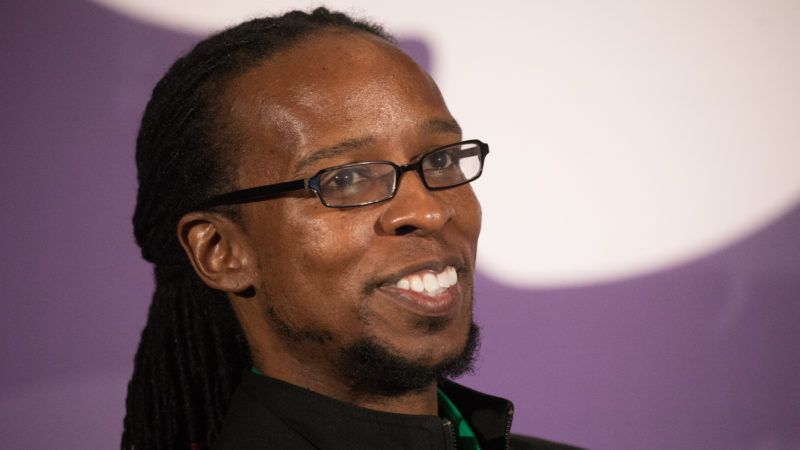Twitter CEO Jack Dorsey Donates $10 Million to Ibram X. Kendi, Who Wants To Make Racism Unconstitutional
"This research will inform and fuel much needed and overdue policy change."

Twitter CEO Jack Dorsey announced on Thursday that he was donating $10 million to Boston University's Center for Antiracist Research, a project recently launched by the antiracist scholar Ibram X. Kendi.
Kendi is the author of the 2019 book How to Be An Antiracist, one of two books that attracted renewed attention following the death of George Floyd. (The other is Robin DiAngelo's White Fragility.) In a tweet, he thanked Dorsey for the grant, which came with "no strings attached."
Dorsey replied that he hoped the center's research would inform and fuel "much needed and overdue policy change."
The CEO of Twitter is more than welcome to spend his financial resources however he sees fit. He can give money to anyone he wants, for any reason. But since Kendi intends to have an impact on public policy—and since these funds presumably will help Kendi fulfill his goals—it's worth scrutinizing what kinds of policy changes he has in mind.
In a 2019 piece for POLITICO magazine, Kendi proposed a constitutional amendment that would prohibit racism. Here is his idea in full:
To fix the original sin of racism, Americans should pass an anti-racist amendment to the U.S. Constitution that enshrines two guiding anti-racist principals: Racial inequity is evidence of racist policy and the different racial groups are equals. The amendment would make unconstitutional racial inequity over a certain threshold, as well as racist ideas by public officials (with "racist ideas" and "public official" clearly defined). It would establish and permanently fund the Department of Anti-racism (DOA) comprised of formally trained experts on racism and no political appointees. The DOA would be responsible for preclearing all local, state and federal public policies to ensure they won't yield racial inequity, monitor those policies, investigate private racist policies when racial inequity surfaces, and monitor public officials for expressions of racist ideas. The DOA would be empowered with disciplinary tools to wield over and against policymakers and public officials who do not voluntarily change their racist policy and ideas.
Such an amendment would constitute a brazen assault on the principles of a free society. Kendi would like to empower a team of government bureaucrats who are beyond even the normal accountability of the political process. Their job would be to investigate both public and private racism, and "monitor public officials for expressions of racist ideas." Kendi's promise that what constitutes a "racist idea" would be "clearly defined" is hardly reassuring: There's no way such a department could avoid becoming an Orwellian nightmare—indeed, the very program would necessitate the formation of a kind of speech police.
This isn't just a bad idea—it's one of the worst ideas ever. Inez Stepman of the Independent Women's Forum called it "woke Stalinism," and she's not even really exaggerating. Under Kendi's proposal, the government would investigate people for making allegedly racist statements, or causing allegedly racial inequities.
The center will probably work on other projects as well. "Kendi's vision for the center calls for multidisciplinary research and policy teams," explained Boston University in a press release. "Researchers across BU, from the law, social work, the humanities, computer science, communications, and medicine and public health, will collaborate with researchers from other universities, as well as data analysts, journalists, advocates, and policy experts."
But it's discouraging to see so much money being spent at least partly in service of a cause that would vastly grow the government's power and gravely undermine free speech—if not destroy it entirely. Dorsey can set whatever speech rules he wants for Twitter: going after the First Amendment is a different and much more serious matter.


Show Comments (261)